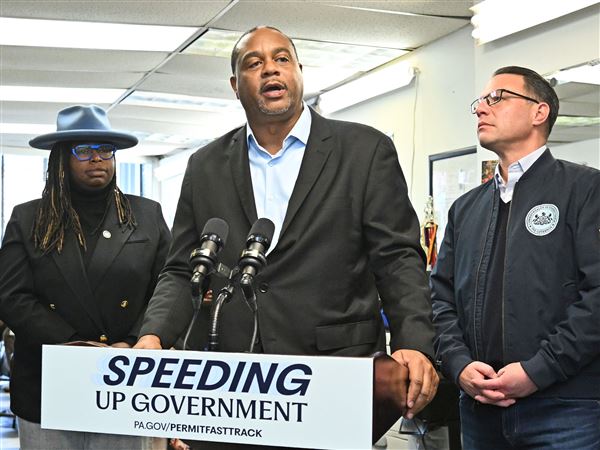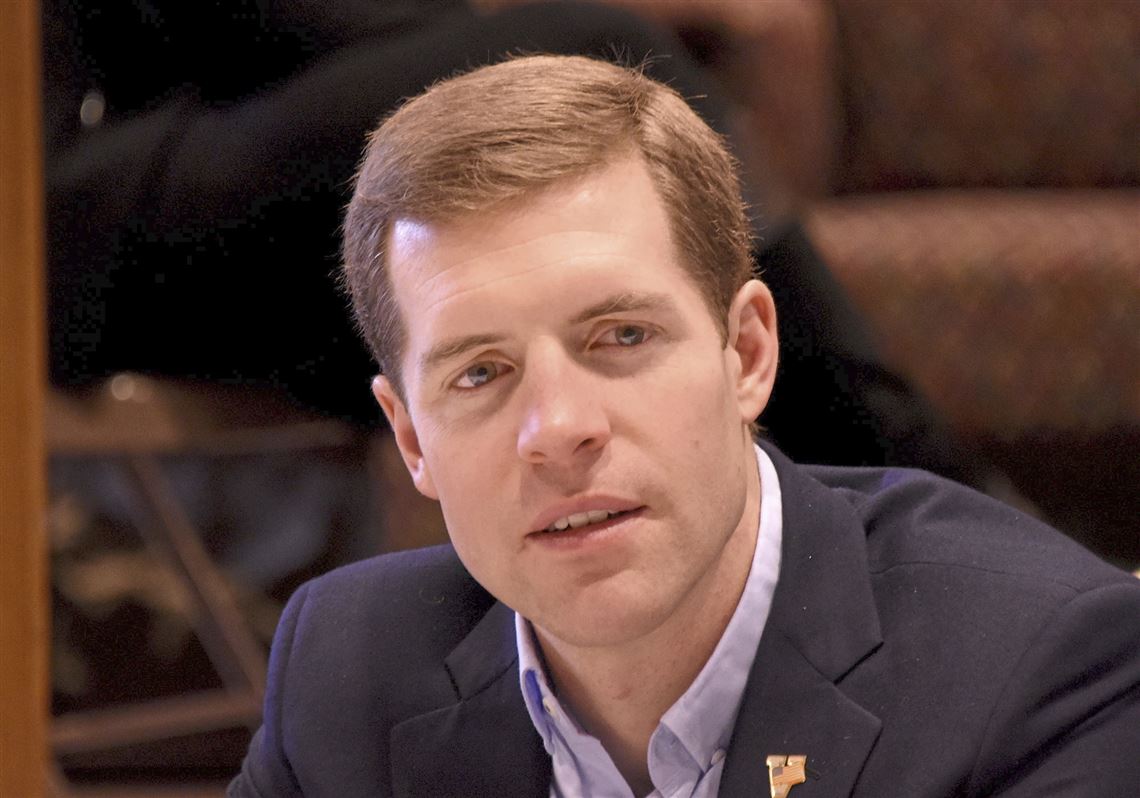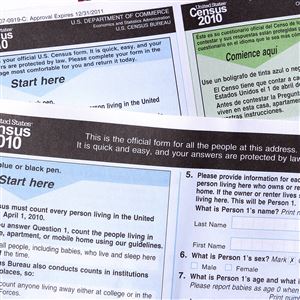Look at it from any angle, and Pennsylvania's 17th Congressional district might seem more like a bizarro world come November.
On midterm election day, it could be the site of an ultra-rare political oddity, with two incumbents from two different political parties, representing two different districts, vying for a seat in a different district.
But Democratic Congressman-elect Conor Lamb and Republican Rep. Keith Rothfus aren't waxing poetic about what might be. For one, Mr. Lamb has a formidable primary to worry about, the first of his young political career, against attorney Beth Tarasi and consultant and Democratic activist Ray Linsenmayer — while Mr. Rothfus faces the prospect of getting his message out to voters in a district that's a bit bluer than he's accustomed to.
"It will be a no-holds-barred fight for the seat," said Charlie Gerow, a longtime Harrisburg GOP political consultant.
With a state Supreme Court redrawing of the district boundaries changing the political makeup of Western Pennsylvania, the 17th gives Democrats a chance to flip a seat held by a three-term Republican incumbent. Mr. Rothfus represents the current 12th district, which will drop its swaths of Cambria, Lawrence, Somerset and Westmoreland counties and pick up portions of Allegheny and Butler.
The race could have national implications, as Democrats aim to win 24 Republican-held seats to retake control of the House. The nonpartisan Cook Political Report and Larry Sabato's Crystal Ball consider the Pennsylvania 17th a toss-up.
Mr. Lamb, a 33-year-old former federal prosecutor, is no stranger to national attention, coming off an astonishingly close win in the current 18th district over Republican Rick Saccone, a state representative from Elizabeth. The race was widely viewed as a referendum on Republican President Donald Trump's first year in office, and was subject to millions of dollars of outside spending and national party interest.
But the strategy might not be the same this time around for Mr. Lamb, who was able to run more toward the center in the 18th, a territory that Mr. Trump won by 20 points in November 2016. In his campaign, Mr. Lamb openly called for change in the House Democratic leadership, vocalized his support of gun rights and said he was personally pro-life, but believed in the separation of church and state.
Mr. Trump won the newly drawn 17th by 3 percentage points, which could push candidates to the left. Ms. Tarasi and Mr. Linsenmayer can offer a check on Mr. Lamb, too. Having practiced law for nearly three decades, Ms. Tarasi said she will bring a wealth of experience to the office. Her campaign will focus on expanding healthcare access, fighting for a fairer tax code and protecting Social Security and Medicare.
The progressive group Keystone Progress has been tracking Ms. Tarasi’s candidacy. The group didn’t endorse Mr. Lamb in the 18th.
"[Ms. Tarasi] is a woman who has a really impressive resume," executive director Dan Doubet said.
Mr. Linsenmayer's opening pitch to voters will include access to affordable healthcare and "real solutions to the opioid epidemic." His platform will be aimed at families in Western Pennsylvania who believe they aren't able to get ahead economically.
But Mr. Lamb said he doesn't think the new map — or the prospect of a difficult primary — will change his message.
"I think that where we had the most success last time was in talking about the things that are truly universal that require bipartisan action, whether it's on the heroin epidemic or infrastructure, Social Security and Medicare," Mr. Lamb said in an interview. "Those issues affect everybody."
Mr. Rothfus, too, said he plans to campaign on values that are "transcendent" to voters, no matter the political map. He said he will stress the importance of growing the economy while continuing to lead the world “not from behind, but ahead,” echoing a message he has told voters in past elections.
“That's a transcendent kind of message that would apply anywhere in this country … you help that a lot by having healthy economic growth that is adding jobs and adding taxpayers,” Mr. Rothfus said.
Mr. Linsenmayer said it won’t be hard for voters to look at their paychecks and see they aren’t benefiting much from the administration’s policies. "I think people are pretty angry right now ... they're not getting a fair shake and they know that," he said.
In connecting economic growth to the current administration's policies, Mr. Rothfus runs the danger of campaigning too close to Mr. Trump. Democrats all over the country are linking their Republican opponents to the president in hopes that Mr. Trump's historically low approval rating will rub off on the GOP in the midterms.
“Certainly, the president has supporters. The president has detractors," Mr. Rothfus said. "I think what you have to do is focus on themes that matter to people the most. Am I better off than i was two years ago? Is my take-home pay going up? Are there there more job opportunities? Is there healthier economic growth?"
"That's the choice that people have and that's the two visions I think the two parties represent," Mr. Rothfus added.
Ms. Tarasi said said she's running against Mr. Rothfus, and not the president.
"Keith Rothfus was in there in office before Donald Trump, and Keith Rothfus has done more to set our area back than anyone," Ms. Tarasi said.
But Mr. Linsenmayer said it is no secret that Mr. Rothfus was an early supporter of Mr. Trump, calling him a “big defender” of the president.
Julian Routh: jrouth@post-gazette.com
First Published: March 25, 2018, 11:15 a.m.


















